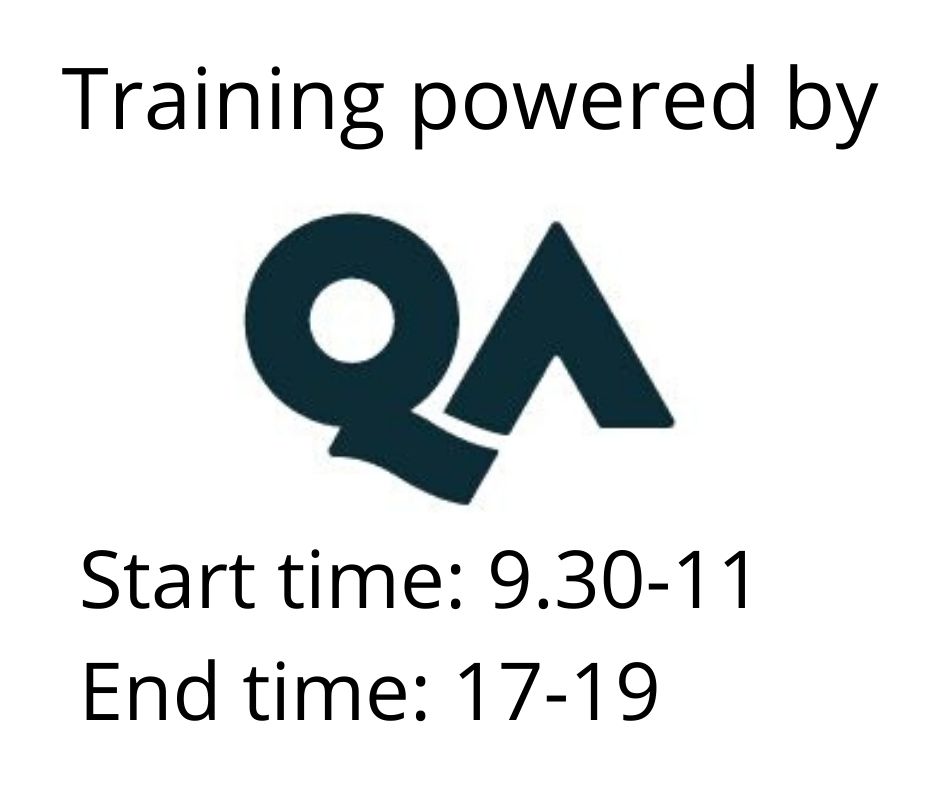BCS Certificate in Systems Modelling Techniques (UML)
Utbildningsformer
Remote
Längd
4 dagar
Pris
42000 kr
In order to communicate system requirements clearly and accurately to both business and IT stakeholders, it is vital for analysts and designers to be able to construct models from a variety of perspectives. In most cases these models will provide the basis for more detailed design.
The starting point for this course is a set of requirements, as defined in the Systems Development Essentials course. It is primarily concerned with modelling systems using selected UML techniques. It requires delegates to construct different types of model reflecting different perspectives and to describe the interactions between them.
At the end of the course delegates may sit an examination to attain the BCS Certificate in Systems Modelling Techniques.
Following your exam you will be sent an email from BCS asking you to register for your exam. Once you have registered and your exam results become available then you will be able to log back into your account and view your results.
This course may be taken as part of the QA programme leading to the BCS Diploma in Systems Development.
At the end of this course you will be able to:
- Justify the need for modelling and modelling techniques
- Explain why it is important to model system requirements from different perspectives and identify specific modelling techniques
- Construct a static structure model (class diagram) construct a process model (activity diagram)
- Construct a simple dynamic event driven model (state machine diagram)
- Evaluate how the various models reflect business objectives and system requirements (via critical success factors)
- Appreciate how the various perspectives inter-relate to each other
An understanding of the fundamentals of systems development, or attendance of QA's Systems Development Essentials course.
If you are taking a BCS exam you must bring photographic identification with you (passport, driving license or student card), as it is a BCS requirement to produce it for the invigilator prior to the exam. Failure to produce a valid form of photographic identification will result in a candidate not being able to sit the exam. For any questions about what form of identification is acceptable please contact your Account Manager or the QA Examination Administration team on 44 (0)1793 696273.
BCS allow additional time for candidates who have a disability or whose native language differs to that of the examination paper. Full details are provided in the BCS Reasonable Adjustments Policy which is available to view on the BCS website. If you believe you qualify for this then please notify the Exam Administration team on the details below as early as possible. At least two weeks' notice will be required for processing this request. Delegates failing to advise QA and provide evidence when requested, may not be allowed the additional support offered via the BCS policy. QA Exam Administration can be contacted by email exam.admin@qa.com or by phone 44(0) 1793 696162.
Please Note: This exam is currently Paper based only, therefore if you are sitting your course remotely, please reach out to your support team to advise of the options for taking your exam. If you are sitting the Course in person, your exam will take place at the end of the course.
Systems Modelling
The need for modelling and modelling standards; Rationale for the selected approach; The approach and a Systems Development Lifecycle; Place of models within the Systems Development Lifecycle; Modelling the system from different perspectives; Interaction of the models; Validating and verifying models
Systems Modelling in Context
Monitoring analysis against business objectives and system requirements; The bridge to design, software package selection, and development
Use Case Modelling
Modelling user requirements; Use cases; Actors and the system boundary; Use case diagrams; Generalising actors and use cases; Use case associations; Use case descriptions Template, Pre- and Post-conditions, Main and alternative flows
Activity Diagrams
Process modelling; Modelling use case descriptions
Static Modelling of Data
Analysis class modelling rationale; Objects and classes; Representing classes and encapsulation; Defining attributes; Associations; Generalisation, inheritance and abstraction; Class diagrams and object diagrams
Dynamic Modelling
State machine diagrams; Use case realisation; Introduction to communication diagrams; Sequence diagrams
Interaction of Models
Activity diagram and Use cases; Use cases and Class Model; State machine diagram and Use cases; Objects and Activity diagrams
Case Study
Throughout the course a case study is used to allow delegates to practise the modelling techniques.
